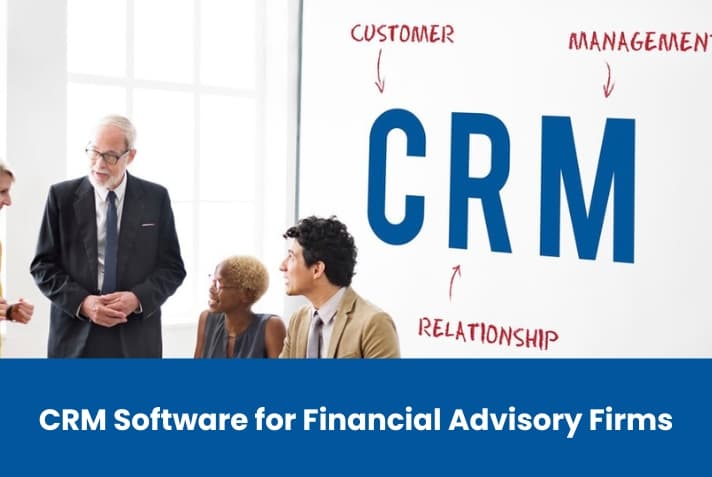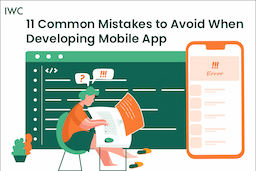CRM Software for Financial Advisory Firms

What do you mean by CRM?
Consumer relationship management (CRM) is the combination of practises, techniques and technology that organizations use during the customer lifecycle to monitor and evaluate customer experiences and data. The aim is to strengthen customer service relationships and help attract customers and drive growth in revenue. CRM systems compile customer data between the customer and the company through multiple channels or points of touch, which may include the website of the company, internet, live chat, direct mail, marketing materials and social networks. CRM applications will also provide customer-facing team members with accurate details on the personal data of consumers, purchasing history, buying habits and interests.
How is CRM Software useful?
CRM (customer relationship management) software is generally used to improve company sales by enhancing the relationship between a business and its customers. For the following items, a robust, modern CRM is often used:
To consolidate into one central space all company info. CRM serves as a portal to access the required details for all team members, including contact information, communication history and customer history. The risks of duplicate data entry and incorrect information are reduced by the opportunity to update data in real time.
Increase prospects for profits. Sales teams are able to spend more time on the road meeting with current and prospective customers with the ability of CRM to automate certain time-consuming activities. CRM also allows sales representatives to develop a sales process, to produce a step-by-step chart of closing deals and to reduce the length of the sales cycle.
Change and keep the emphasis on your clients. By putting all data in one central space so that consumer expectations are met and sales teams can move rapidly through their sales cycle, CRM focuses on the customer, who is the heartbeat of every organisation. CRM helps organisations predict consumer needs, which increases the experience of customer service.
Benefits of CRM Software?
Enhances monitoring of contacts
Increases retention and satisfaction of customers
Sales Management Progresses
Increases production and efficiency
Creates cooperation between organisation and team
Facilitates reporting accuracy and forecasting of revenues
Increases insight into data for marketing and product growth
Supports revenue metrics in detail
Boosts corporate growth
How to choose a CRM for your business?
The best form of CRM is one that is specifically selected to meet the specific needs and specifications of your organisation. Don't distract yourself with bells and whistles. Instead, before you start interviewing vendors and reviewing systems, make note of the features and capabilities you need.
Feature rich
Identify pain points, identify your goals and then decide which attributes you will need to accomplish these goals. For all CRM solutions (such as contact management), some features are universal, while others may be more special (email, reports, marketing, automation). After deciding your wish list of features, review each CRM system and ask the supplier if it suits your specifications directly.
Deployment
CRM software that can be deployed in the cloud, on-site, or a hybrid combination of the two is offered by some vendors. Generally speaking, cloud-based CRM has lower upfront and maintenance costs, but if you add more users, the cost can rise. Technology installed on-site would have higher upfront and maintenance costs, but you will own the software so that it will minimise the long-term costs.
Prominence
Recommendations from individuals you trust can be an outstanding way to find a trustworthy supplier of CRM. Speak to your clients and business partners and ask what approach they are using and how they like it. Did they come across any pressure points? If so, how open is the service to the client? Experience first hand will speak volumes, so inquire around.
Cloud Based CRM
With cloud storage CRM, also known as SaaS (software as a service) or on-demand CRM, data is stored on an external, remote network that employees can access at any time, anywhere there is an internet connection, often with installation and maintenance monitored by a third-party service provider. The quick, relatively simple deployment capabilities of the cloud appeal to businesses with limited technical expertise or resources.
Data protection is a primary concern for businesses using cloud-based services, since the organisation doesn't physically monitor the storage and management of its data. If the cloud provider goes out of business or is bought by another business, it is possible to damage or lose the data of an organisation. Compatibility problems can also occur when data is transferred from the internal structure of an organisation to the cloud initially.
Cloud CRM may be seen by businesses as a more cost-effective alternative. Usually, vendors bill the customer on a subscription basis and offer the possibility of monthly or annual payments. Cost can also be a problem, however, because it may be more expensive over time to pay subscription fees for software than for on-site models.
Why choose FODUU CRM Software for financial advisory firms?
Every client wants to provide the best customer service, but sadly, you can lose your customers forever by operating on some obsolete apps. It is a difficult job to gain personalised confidence and share knowledge, but a critical one, so the apps must give the best experience or enhance the customer experience. The financial advisor needs to know the interests of the customers and some other information. In order to improve your company and hone your goals further, your Financial Services programme must provide certain services.
Improving customer support is a priority, but it is quite clear that it raises company revenue. As revenue increases, each financial advisor needs to increase their revenue and you can grow your company and do more to increase business productivity and efficiency. Choose better financial services applications that can fulfil your priorities and expand your business platform.
Often, when your employee works, what they do, how many clients they deal with, and many more things, you can not handle the company. For your financial services that can handle your job, a special aphorism software is needed, so our advice is to go only for that software that shakes hands with you and is ready to play a role of assistance to keep your company at par.
Recent Blogs

How to choose the Right Website Design and Development Company in India

What is iOS App Development?
